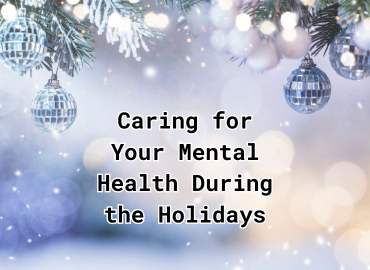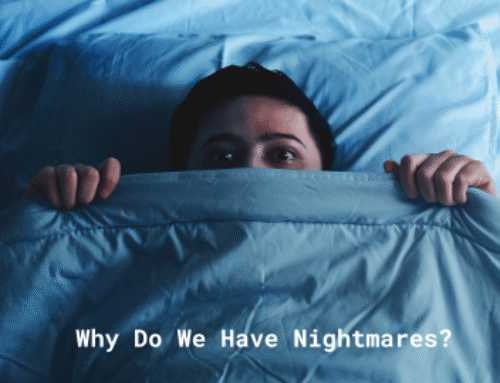Caring for Your Mental Health During the Holidays
It’s the end of 2024, and in the United States, that means that it’s time for celebrating Christmas, New Year’s, and other winter holidays. But maybe you’re having a hard time feeling the holiday spirit. You feel tired, listless, stressed, and joyless. That’s understandable, and you’re not alone.
A 2023 survey by the American Psychological Association (APA) found that a whopping 89% of U.S. adults feel stressed during the winter holiday season, and 41% report feeling higher stress levels at this time than at during other times of the year.
Stress isn’t just unpleasant, it’s unhealthy no matter your age, ethnicity, or occupation. Stress can cause or add to other problems like these:
Exhaustion
Impacted immune system
Disordered eating
Disordered sleeping
Impacted relationships
Anxiety
Substance abuse
These problems are in turn made worse by common holiday factors like being short on time, not having enough money to do all we’d like, handling a lot of plans and logistics, and having to be around people a lot of the time. It’s no wonder that the National Alliance on Mental Illness (NAMI) finds that about 64% of people living with an existing mental illness believe that their symptoms worsen at this time of year. Data is unclear regarding other prominent holidays in the United States like Independence Day.
To help better understand the issue, let’s take a look at some situations involving people in our lives.
David is getting older. He is now past 65 and a widower. He has lost much of his friends and family due to factors like death, distance, and them being caught up in celebrations with others around them. He finds himself alone for Christmas and wishes that he could skip the holidays.
Tasha has the opposite problem from David. She finds herself surrounded by family and friends. She’s happy to see them, but it’s rapidly becoming too much. Tasha spends all her time buying gifts, running errands, and preparing for the dinner party she plans to host. She wants to feel happy but is starting to feel overwhelmed and regrets some of her commitments.
Shane has been working hard and is feeling tired. Also, he recently had to spend a lot of money on unexpected car repairs. Combined with other expenses, he can’t afford the kind of gifts he used to be able to get for his partner. He feels inadequate when he compares himself to others who can treat their loved ones to all kinds of special items.
Situations like these are happening to people all around us, and you might find yourself identifying with them too. Here are some simple things to remember that will help you stay healthy:
Pay attention to your sleep quality by allowing for enough time to sleep and using other aids such as melatonin supplements if necessary
Watch your consumption of high-calorie, low-nutrient foods like cookies
Be careful not to indulge too much in substances like alcohol, especially when taken with many prescription drugs
Get some sunlight if possible
Try to treat yourself as a priority, not as the last on the list
If you’re doing what you can for yourself and you’re still feeling down, withdrawn, and irritable, there might be more going on. If your depressive and/or anxious symptoms aren’t going away and are affecting your ability to run your life, it could be depression, possibly seasonal affective disorder, or SAD. According to the Substance Abuse and Mental Health Services Administration (SAMHSA), SAD is “a condition in which people experience symptoms of depression that are triggered by the change in seasons as the days get shorter. While this form of depression often improves in the spring and summer, it is important to talk with your health care provider if you feel you are experiencing these symptoms. Treatment is effective and may include light therapy, antidepressant medication, and/or talk therapy.”
If you find yourself consistently feeling depressed in the winter, it could be SAD. SAD will also exacerbate any depressive symptoms that already exist. Let’s go back to our real-life stories.
David decides to join a gathering of people who are also alone for the holidays. He participates in a card-sending group and volunteers at a local shelter. The socializing, stimulation, and doing good all put him in a better place.
Tasha decides to enlist help. First, she doesn’t force herself to make all the dishes, choosing instead to order some of them in or ask guests to bring something. She enlists the help of the children in various tasks like setting the table and putting up the coats.
Shane does some thinking and remembers that what he wants most out of the holiday season is good memories, and he feels confident that his partner will agree. He gathers up some
inexpensive craft supplies and starts a scrapbook where they can keep items like printed photos, ticket stubs, and pressed leaves.
If you’ve been feeling lost and in a low mood that goes beyond holiday stress, contact us. Write to us anytime on our website or call (585) 442-6960. Merry holidays to all!




